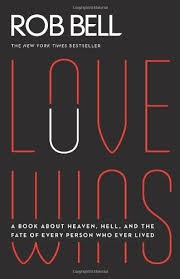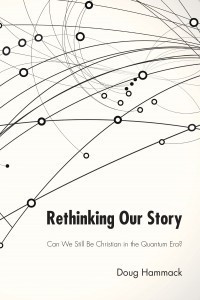“ No man is an Island, entire of itself; every man is a piece of the continent, a part of the main. If a clod be washed away by the sea, Europe is the less, as well as if a promontory were, as well as if a manor of thy friend’s or of thine own were: any man’s death diminishes me, because I am involved in mankind, and therefore never send to know for whom the bells tolls; it tolls for thee.” John Donne, 17th century English poet.
No man is an Island, entire of itself; every man is a piece of the continent, a part of the main. If a clod be washed away by the sea, Europe is the less, as well as if a promontory were, as well as if a manor of thy friend’s or of thine own were: any man’s death diminishes me, because I am involved in mankind, and therefore never send to know for whom the bells tolls; it tolls for thee.” John Donne, 17th century English poet.
John Donne and Galileo
For a 17th century Protestant cleric, John Donne was ahead of his time, more aligned with Eastern religious influences that many of us embrace in the 21st century, than with the Anglican theology of his day. Unlike many of us and the poor fellow in the photo, he escaped persecution because he had an ability to charm the aristocracy with his skillful poetic metaphors and aptitude for diplomacy. Also the Anglican Church had just split from the Roman Catholic and was in a stage of open exploration, trying to define its religious theology as separate from the Catholic.
However, navigating around persecution did not come easy or without persistence. He was snubbed in his early years forcing him and his family to live with poverty and sickness until he was able to gain respect through intellectual fortitude and fine tuning his aesthetic sensitivity with words. By that time, the damage was done and so sickness continued with him until his death. When he became bedridden and elderly he became temporarily delusional one day, and so upon hearing church bells playing a funeral hymn for someone in his town, he thought they were signaling his own death. When he was told otherwise, he had a revelation which he expressed in the famous lines at the beginning of this post, “… any man’s death diminishes me, because I am involved in mankind, therefore never send to know for whom the bells tolls; it tolls for thee.” Many of us, like him, are able to sense at times a strong connection with all who live, love and die.
When his only and only wife, the love of his life, died a premature death, it was said that “Donne was done” with death. He chased off the fear of death with his immortal words “Death, be not proud, though some have called thee mighty and dreadful, for thou art not so … One short sleep past, we wake eternally, and death shall be no more; death, thou shalt die.” John Donne thus captured the spiritual core of Paul of Tarsus’s message to the Corinthians, wherein which the apostle quotes the Old Testament, “When the perishable puts on the imperishable, and the mortal puts on immortality, then shall come to pass the saying that is written: ‘Death is swallowed up in victory.’” (1 Corinthians 15:54).
To put John Donne’s journey in perspective, he was born a decade after England posted its 39 articles of faith, separating itself from the Roman Catholic authorities and what it considered other divergent sects, like the Anabaptists. Two years after John Donne’s death, Galileo was forced to recant his theories of heliocentric movement of the earth around the sun, his published works were burned, and he was forbidden to publish any further scientific research. When some of the heat died off decades later, he was able to publish a master scientific thesis in Holland, and for which he has become known as the father of physics. Like Donne, Galileo had an intense intellectual capacity mixed with aesthetic sensitivity, in this case, that of an artistic painter. The merging of analytical intellect with creative intuition was a key factor in freeing these two Christians from the limitations of their restrictive cultural biases. The difference between the two was that Donne was a charming socializer with the mentality of an ambassador, whereas Galileo was argumentative and stubborn, which led to him unnecessarily insulting the Jesuits who refuted him, and which boomeranged back on him when the Jesuits sought to disfavor him with the Pope. The moral in this is that social skills can greatly minimize martyrdom. Of course, the biblical accounts of Jesus and John the Baptist show them purposely insulting the Jewish authorities in order to expedite their predestined martyrdom.
Rob Bell and Andrew Perriman
Closer to our times, a more modern Christian progressive, and for whom the bell tolls, is coincidentally named “Bell”. He is “Rob Bell” to be exact, who founded Mars Hill Church in Michigan and grew it into a mega-church while espousing from his pulpit and best-selling books about Hell not being eternal torture and universal salvation (everyone will be reconciled to God). This was a revolutionary thing to do in 2011 in an Evangelical church. His works went viral, including his most controversial book “Love Wins”.
 For this he was named the most influential Christian cleric of 2012. But, of course, no good deed goes unpunished, so in 2012 the church that Bell built dumped Bell. Seems like a bad ending, but in fact, it gave him even more freedom, for instance, to make reconciliatory statements in media interviews in favor of accepting gays in the Evangelical church, perhaps paving the way for the Pope’s present position of acceptance. In any case, he has since filled his calendar with speaking engagements which pack the house, including nightclubs, to reach out with a message of love and reconciliation to a population that would otherwise reject classical Christianity with its judgmental overtones. He has also experimented with getting involved with media presentations. So he is now expanding the limits of classical Christianity by working outside it. His social skills as a successful pastor and his persistence have enabled him to triumph over persecution and share the new good news.
For this he was named the most influential Christian cleric of 2012. But, of course, no good deed goes unpunished, so in 2012 the church that Bell built dumped Bell. Seems like a bad ending, but in fact, it gave him even more freedom, for instance, to make reconciliatory statements in media interviews in favor of accepting gays in the Evangelical church, perhaps paving the way for the Pope’s present position of acceptance. In any case, he has since filled his calendar with speaking engagements which pack the house, including nightclubs, to reach out with a message of love and reconciliation to a population that would otherwise reject classical Christianity with its judgmental overtones. He has also experimented with getting involved with media presentations. So he is now expanding the limits of classical Christianity by working outside it. His social skills as a successful pastor and his persistence have enabled him to triumph over persecution and share the new good news.
Here is a recent update on Rob Bell. After two projects he proposed to network television fell through, he was picked up and promoted by the Oprah Winfrey Network (OWN) and has now been given his own weekly TV show, “The Rob Bell Show,” to be included on Oprah’s Super Soul Sunday” series restarting in January. It premiered December 21st. Snippets from the show can be seen at http://www.oprah.com/app/the-rob-bell-show.html.
Speaking of Hell, according to Rob Bell’s 21st century contemporary, Andrew Perriman, in his book “Hell and Heaven in Narrative Perspective”, the traditional concept of Heaven and Hell are stories we have misinterpreted from scripture because we are unfamiliar with the context used to address the first century audience, including the cultural background, linguistic idioms, and hidden coding employed to avoid persecution. According to Perriman, documents found among the Dead Sea scrolls explain this context. Hell, for instance, is meant to refer to a temporary punishment intended for Roman persecutors who will be gathered into the valley of Gehenna, which a very unpleasant place according to 1st century Jewish understanding, but it is not a place of eternal torment for all unrepentant sinners, which many of us may have been led to believe. Once we get this, we can use Perriman’s thesis as an intellectual aid to “convert Evangelicals”. This is indeed a new and double twist on the Great Commission. It puts the shoe on the other foot, converting the Evangelicals. Many of us may feel called to do just that.
There used to be a lot of Christians who rejected the idea that a loving God could subject humans to eternal torture based on intuition. Now eternal torture is objectively disputed with intellect, archeology and facts thanks to Rob Bell and Andrew Perriman.
 Doug Hammack and the Hall of Martyrs
Doug Hammack and the Hall of Martyrs
Closer to home, I personally know an unconventional minister who is leading a non-traditional church near where I live in the Raleigh/Durham area of North Carolina. He has journeyed on the path of semi-martyrdom somewhat parallel in some respects to Rob Bell’s. He has recently published a book taking Perriman’s conclusions, grouping them with several other issues that challenge classical Christianity, and which together provide a compelling argument for us to engage in “Rethinking Our Story: Can We Still Be Christians in the Quantum Era ?” Take a look inside the cover of Doug Hammack’s book at http://www.amazon.com/Rethinking-Our-Story-Christian-Quantum/dp/1625642911/ref=tmm_pap_title_0?ie=UTF8&qid=1398434046&sr=8-1
In this post I have presented a small sample of the host of martyrs in this common cause. Like many of us, they reached out for the light and found more of it beyond the boundaries and restrictions of religious conformity. They inspire us to succeed with their mixture of intellect, aesthetic sensitivity, and endurance. We celebrate with them today in the Hall of Martyrs. “Onward and upward,” as Aslan in the Chronicles of Narnia is known to say.
Robert,
Thanks for bringing Rob Bell’s work to light in this post. I had never heard of his work before reading this article, but I’m glad he had the guts to teach that the Hell we hear of in the Bible is not a place of eternal torment. The Hell spoken of in the Bible, whether Hell, Hades, or Sheol, are all symbols of the four lower planes of nature: the lower mental, astral, ethereal, and physical planes. This is where the spiritual ego must incarnate to grow and expand!